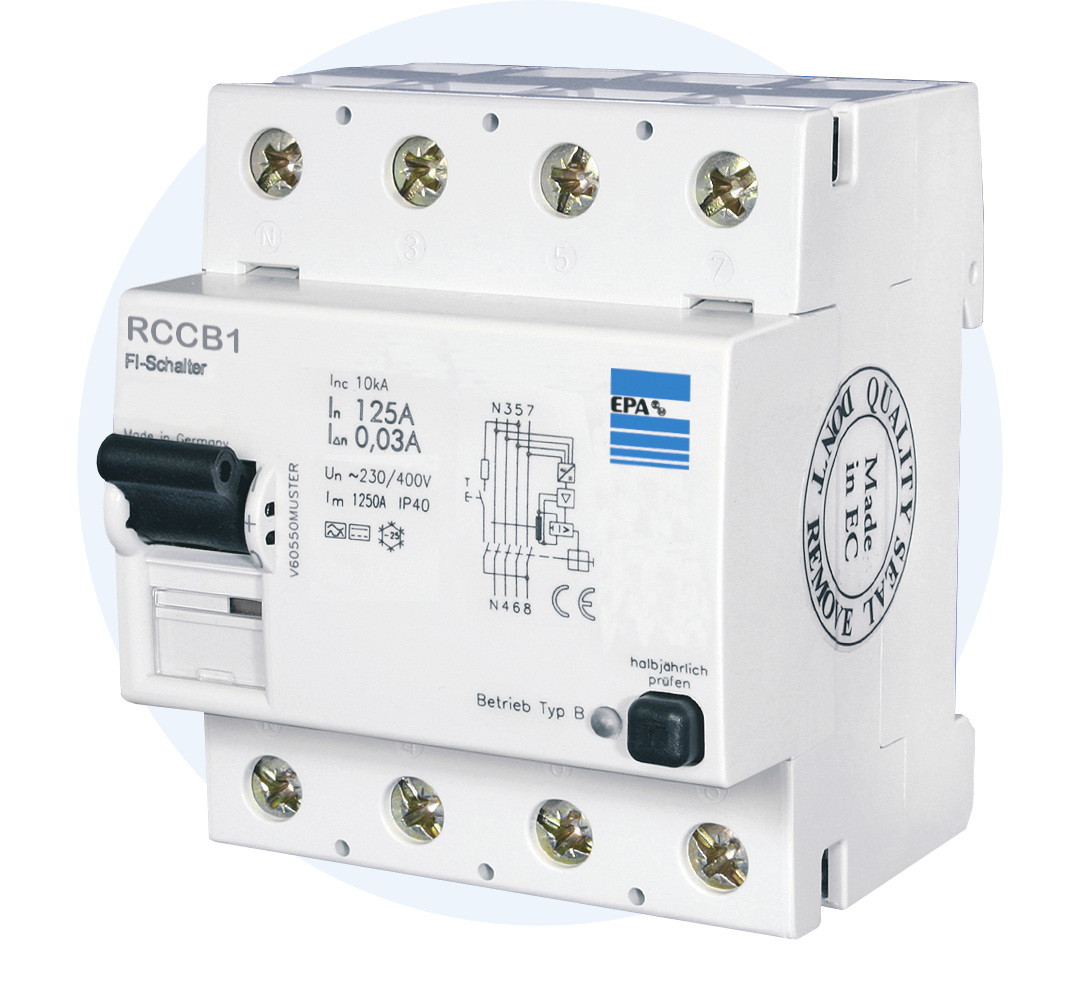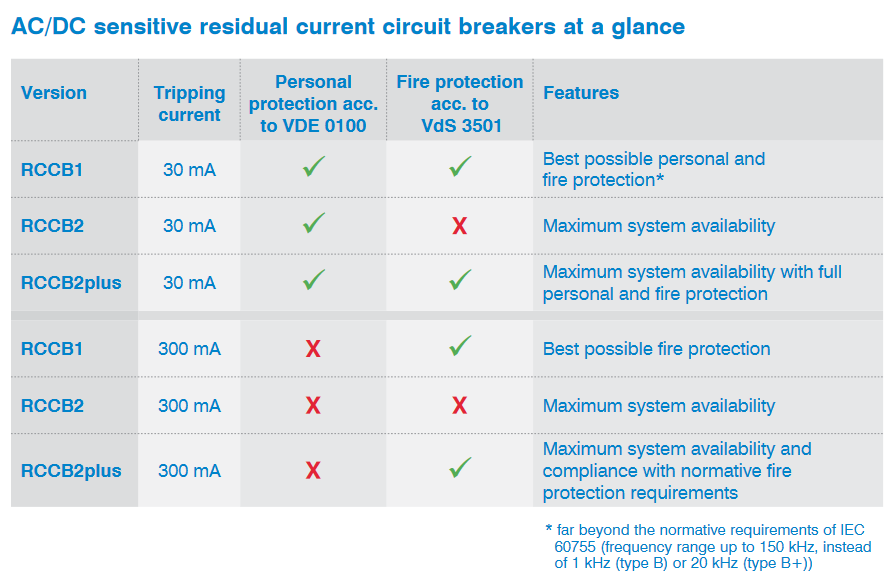AC/DC-sensitive residual current circuit breakers type EPA RCCB1, RCCB2 and RCCBplus are intended for the use in 50 Hz AC systems with electronic equipment, such as frequency inverters, uninterruptible power supplies (UPS), switched-mode power supplies, phase angle controllers (soft starters), and thyristor controllers. Modern devices of power electronic, e. g. frequency inverters and AC/DC converters, produce a bipolar, pulse width modulated voltage at the output, which need to have switching frequencies in the range of up to 20 kHz. In case a failure occurs, these resources can cause in addition to 50 Hz AC and pulse DC residual currents also smooth DC residual currents and residual currents with mixed frequencies (in frequency inverters, e.g. the switching frequency and the output frequency). Commercially available residual current circuit breakers with tripping characteristic AC or A (according to IEC 60755) can not correctly capture such residual currents, so that a proper tripping of the residual current circuit breaker is not guaranteed.

AC/DC sensitive RCCBs (type B / B+)
- Special characteristic for use with electronic equipment e. g. frequency inverters
- Detects pulsating and smooth DC fault currents
- Detects low to high frequency AC fault currents for optimum personal and fire protection
Moreover, even the proper triggering of a RCCB of type AC or A with AC residual current or pulsating DC fault current of 50 Hz may be adversely affected or even prevented by a co-existing smooth DC residual current. The residual current circuit breakers of series EPA RCCB1, RCCB2 and RCCBplus capture all types of residual currents corresponding to the tripping characteristic B of the publication IEC 60755; i.e. smooth DC residual currents are reliably detected. All switches of the type EPA RCCB1 and RCCB2 are also responsive to AC residual currents including all frequencies and mixed frequencies up to 150 kHz (RCCBplus up to 20 kHz). The tripping characteristic is not constant over the entire tripping frequency range, but has a different frequency response depending on the rated residual current and switch type.
To avoid unwanted tripping of an AC/DC-sensitive residual current circuit breaker due to leakage currents, the tripping frequency response is therefore (besides its residual current) of great importance. Also in the VDE („Establishment of low voltage systems – part 530: selection and establishment of equipment – switching and control devices“) the use of residual current devices Type B is mandatory for residual current protective circuits in systems with resources that can cause a smooth DC fault current (e.g. frequency inverters); These also have to be used for preventive fire safety. The guideline VdS 3501 also recommends the use of such circuit breakers.

